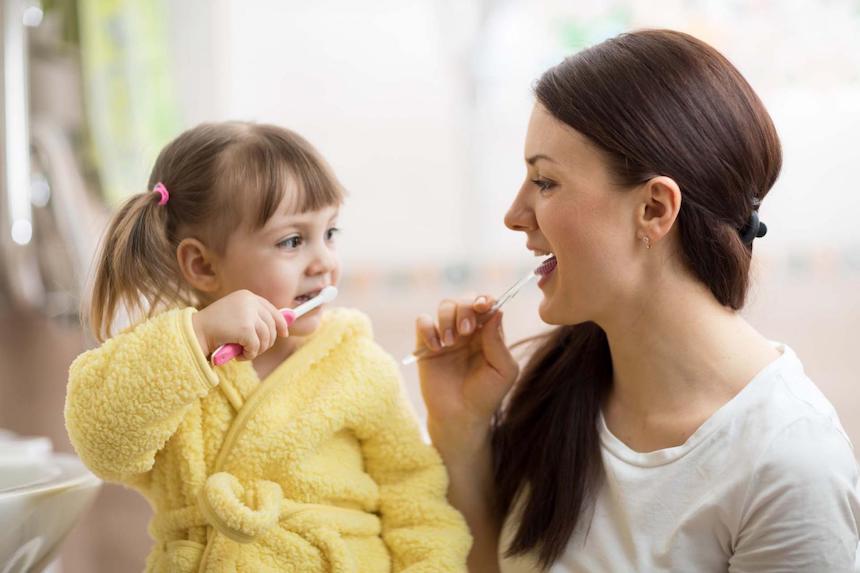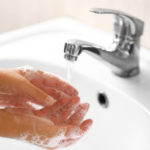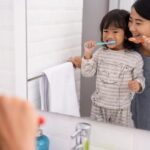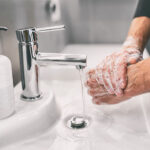
One of the best things you can do for your kids is to teach them a healthy hygiene routine. It’s crucial to do it when they’re young age, as then they mold their habits for life. If your kids have personal hygiene habits that they stick to, it means they are most likely to be healthy in that aspect. Handwashing is one of the key things to teach kids as they touch all kinds of surfaces, share things with each other, and spend time in close contact in kindergarten or with their classmates.
Surfaces such as doorknobs and tables are full of bacteria and germs that can easily be transmitted to other children and people. That’s why it’s essential to teach them the basic habit of handwashing or disinfecting hands. Besides this healthy habit, there are a few more you should teach your kids. Take a look at what other hygiene habits for kids should you have in mind to instill in them.
1. Brushing Teeth
Let’s start with dental hygiene. Experts suggest that you should start teaching your kid to brush their teeth when they are 3 as by then they usually have a full set of baby teeth. However, this process usually lasts until they are 6 to 8. They are still developing their motor skills at this age, so you should monitor the process yourself until they fully master the skill. Slowly introduce other aspects of teeth brushing such as flossing and brushing the tongue as well as the roof of the mouth and the insides of the cheeks. In order to make the process more fun and last a certain amount of time, you should get a fun timer such as an hourglass filled with coloured sand, for instance.
2. Washing Hands
Surely one of the most prominent personal hygiene habits is handwashing. As we already mentioned, children tend to touch so many surfaces during the day. These surfaces are usually covered with all kinds of germs and bacteria that can get them sick and cause some health problems. For younger kids, you’ll first need to remind them from time to time, until it becomes normal for them. It’s important to teach this habit in the right way.
That means that you should teach your children to use warm water and soap. They should rub soap on their hands for about 15 seconds, with the water turned off, to conserve it. Afterward, they should rinse it. In order to make sure they wash their hands as long as they should, you can tell them to sing the Happy birthday song twice. It will help them be motivated to do it in the right way. Another thing you can think about is installing hand dryers in your bathrooms, as it will enable your children to dry their hands quickly and safely, without touching a surface covered in germs.
3. Bathing
Evening baths have so many benefits. One of them is relaxing kids before bed and another one is keeping them all washed and clean. It’s definitely better to bathe your kids at night than in the morning. When they are a bit older, for example, at 6, you can even teach them to take a shower on their own. Of course, you should be there to monitor them and to make sure they do it correctly. You should supervise shampooing and rinsing until they become experts. Don’t forget to place a bath mat to prevent any slips and injuries.
4. Sneezing and Coughing
Sneeze is very dangerous as not only that it travels 100 miles per hour but it also sends 100,000 germs into the air. That’s why it’s critical to teach your children to cover their mouths and noses when sneezing and coughing. It will prevent germs from affecting kids or people around them. If they can’t reach for a tissue fast enough, teach them to use the crook of their hand in that case only.
5. Keeping Nails Neat and Trimmed
It’s widely known that fingernails are a breeding ground for bacteria. Kids can easily transfer the germs that lie under their fingernails to their eyes, mouth, and nose. What can you do about this? Well, for starters, you could buy a nail brush and teach your children to use it while washing their hands. In that way, they’ll get rid of these harmful bacteria. They should do it as often as they can during the day. Also, as this is something your children need help with, make sure their nails are clipped every week – it will reduce dirt and the possibility to get sick as well as ingrown nails.
While you’re teaching your kids these personal hygiene habits, you’re teaching them how to be healthy at the same time. And let’s face it, it is the most important thing you can teach them, so make sure that you don’t skip a single part of it.
- The Benefits of Working From Home - July 15, 2021
- Best Personal Hygiene Habits to Teach Kids - April 10, 2021
- How to Keep Your Kids Safe With Home Security Cameras - September 6, 2019






